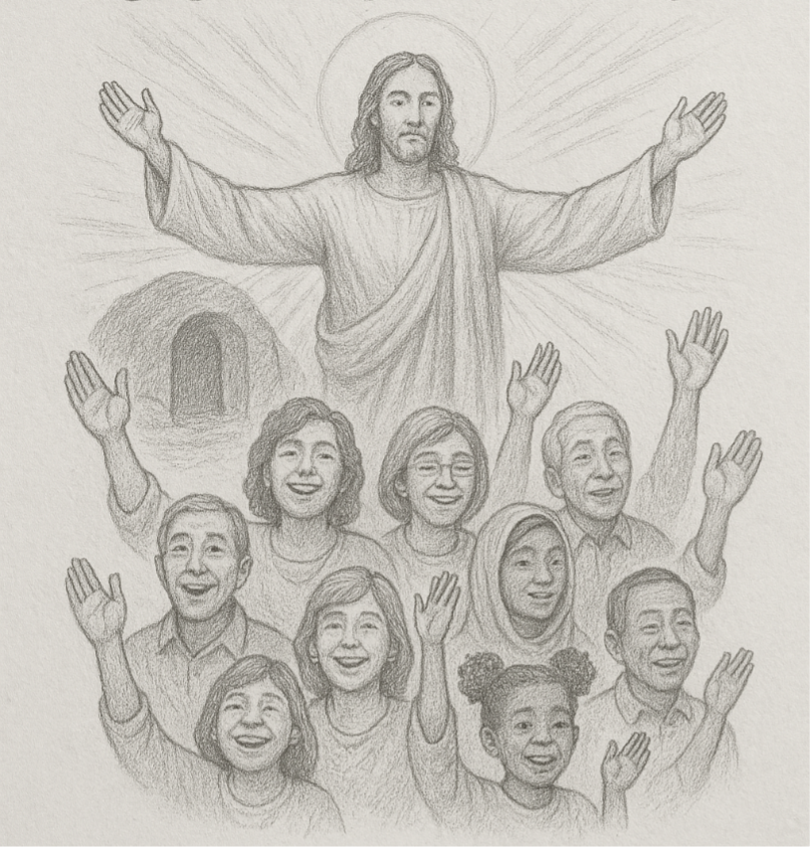
by f. Luis CASASUS, General Superior of the Idente Missionaries
Madrid, September 19, 2021. | XXV Sunday in Ordinary Time
Book of Wisdom 2: 12.17-20; Letter of James 3: 16-18.4,1-3; Saint Mark 9: 30-37.
In today’s Gospel, Jesus does not simply speak to us about the dangers of ambition and envy. Nor does he limit himself to emphasize the importance of welcoming the weakest and most vulnerable. In a masterly and unexpected way, he gives us a lesson of the utmost practical value about human nature.
Indeed, from the beginning of Genesis, with the fall of Eve and Adam, we are instructed about the origin and consequences of ambition. Shortly afterwards, with the narrative of Cain and Abel, a similar lesson on envy was offered to the Jewish people and to all of us. The Old Testament, too, often reflects Yahweh’s desire that we be imitators of his mercy for the weak and vulnerable.
But today, Jesus takes advantage of a conflict among his disciples to go further and show us something we did not suspect: there is a way of dealing with the “little ones” that is at the same time a powerful remedy against the storms of the passions, in particular ambition and envy.
In today’s terms, we would say that our desire for self-esteem, to feel appreciated and valued by others (and also by God, as seen in Cain) can lead us to behaviors of envy or various forms of violence, even towards people who love us and whom we love.
Of course, before violating the domain of charity, we are capable of withdrawing into ourselves, pretending to keep time, persons or freedom exclusively for ourselves, thus violating Poverty, Chastity and Obedience.
Jesus shows us, also in today’s modern terms, that our nature is ecstatic and that, if we are faithful to our ecstatic form of relationship, we will not only do good, but we will find a peace we never imagined. Like elephants, ants or bacteria, we are social…but only human beings are ecstatic.
During the gold rush in the United States, in the 19th century, in a Western mining camp, a baby was born. His mother was the only woman in the place, and she died soon after the child’s birth. The miners decided to keep the child, and care for him. The little baby lay in an old box, wrapped in rags, torn from old clothes. One miner rode 80 miles on a mule to the nearest town, and bought a complete set of baby clothes, and a beautiful rosewood cradle. The clean cradle stood in stark contrast to the dirty floors, and grimy walls of the mining cabin. The men realized that a baby’s home could be nicer than that. So they scrubbed, papered, and whitewashed the place. On sunny days, they took the infant outdoors for a nap in the fresh air. The men cleaned the house and grounds, and then cleaned themselves. After work, they changed their clothes, washed, and shaved. They even purchased a few mirrors for the place. They made a rule against unnecessary noise. These miners stopped yelling and shouting. They even stopped cursing and swearing. Eventually, this once rough and roaring camp became the most clean, courteous, and kind camp in the entire West… and all because of one baby!
Welcoming and serving the weak and vulnerable radically transforms us. Moreover, if we are capable of living an authentic self-denial to serve others, Christ tells us today that it is our heavenly Father who unites himself to us: Whoever receives one child such as this in my name, receives me; and whoever receives me, receives not me but the one who sent me. These are the two intimately united phases of ecstasy: going out of ourselves and going where we have never gone before. Of course, as the First Reading tells us, we have to pay for that. The believer suffers at the hands of those who hate God. The righteous suffer at the hands of the jealous and the devious.
In Jesus’ time, children were loved, but no social importance was given to them. Then the meaning of Jesus’ gesture, embracing a child, becomes clear. I have to put at the center of my attention and efforts those who do not count, the marginalized, those who may never be able to help us in our material, spiritual or apostolic plans.










